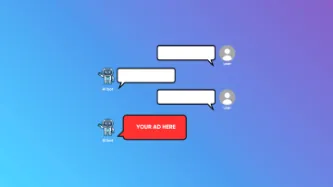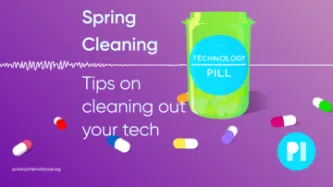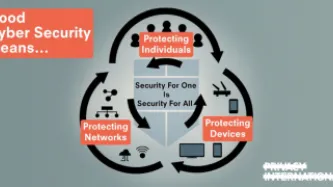Advanced Search
Content Type: Advocacy
The International Labour Organisation (ILO) is developing standards for decent work in the platform economy. Gig workers are exposed to a range of harms because of the precarious nature of their work and the use of opaque algorithms to manage them.Privacy International has come together with Human Rights Watch, TEDIC, IT for Change, Derechos Digitales and more than 30 other organisations to demand that this new ILO standard puts a stop to harmful practice, protects and promotes workers' rights…
Content Type: News & Analysis
Layla looks at her calendar on her phone. She’s in charge of planning her book club’s monthly meeting. After thinking for a second, she summons her AI assistant: “Hey Assistant, can you book me a table at that tapas restaurant I read about last week, and invite everyone from the book club? The restaurant should be in my browsing history. Let me know if the journey is more than 1-hour for anyone”. As the assistant compiles a response, she wonders if anyone else will hear this.Technology has made…
Content Type: Long Read
“Hey [enter AI assistant name here], can you book me a table at the nearest good tapas restaurant next week, and invite everyone from the book club?” Billions of dollars are invested in companies to deliver on this. While this is a dream that their marketing departments want to sell, this is a potential nightmare in the making.Major tech companies have all announced flavours of such assistants: Amazon’s Alexa+, Google’s Gemini inspired by Project Astra, Microsoft’s Copilot AI companion and…
Content Type: News & Analysis
We’ve been asked a lot lately about whether it is safe to travel, particularly to the US. And it’s not surprising why: the US Government is increasing their cruelty at borders.Border management today is fueled by our data, but government officials want more. They want as much data as they can get to catch you out. They’ve reportedly detained or deported people based on their free speech activities, denying entry on tenuous grounds like having the wrong photos on phones (including in in the ‘…
Content Type: Long Read
IntroductionIn early October this year, Google announced its AI Overviews would now have ads. AI companies have been exploring ways to monetise their AI tools to compensate for their eye watering costs, and advertising seems to be a part of many of these plans. Microsoft have even rolled out an entire Advertising API for its AI chat tools.As AI becomes a focal point of consumer tech, the next host of the AdTech expansion regime could well be the most popular of these AI tools: AI chatbots.…
Content Type: Advocacy
In May 2024, we made a submission for the forthcoming report of the UN Special Rapporteur on the right to education to the General Assembly in October 2024.
Amongst others we recommend the UN Special Rapporteur for this upcoming report to:
Underline the need for a human rights-based approach to all AI systems in the education sector and describe the necessary measures to achieve it.
Reassert that any interference with the right to privacy and the advancement of the right to education due to…
Content Type: Long Read
Social media is now undeniably a significant part of many of our lives, in the UK and around the world. We use it to connect with others and share information in public and private ways. Governments and companies have, of course, taken note and built fortunes or extended their power by exploiting the digital information we generate. But should the power to use the information we share online be unlimited, especially for governments who increasingly use that information to make material…
Content Type: Advocacy
We are responding to the UK Government's consultation to expand its powers around Technical Capabilities Notices and National Security Notices.
Background
Following Edward Snowden's revelations about the illegal and expansive secret powers of the US and UK intelligence agencies, the UK Government took the opportunity to, rather than reflect on what powers are proportionate in the modern era, to expand its arsenal of surveillance powers.
One of the powers it added was the ability to issue…
Content Type: Video
Links
More information about how Bounty illegally exploited the data of 14 million mothers and babies: https://pvcy.org/podillegalexploitation
Sign up to our corporate exploitation email list to find out more about our work on brands and the advertising supply chain: https://pvcy.org/podsignup
Original podcast: https://privacyinternational.org/video/3787/podcast-marketing-and-maternity
----------
Orginally Recorded 12th March 2020.
We can’t believe we’re having to say…
Content Type: Frequently Asked Questions
On 27 October 2020, the UK Information Commissioner's Office (ICO) issued a report into three credit reference agencies (CRAs) - Experian, Equifax and TransUnion - which also operate as data brokers for direct marketing purposes.
After our initial reaction, below we answer some of the main questions regarding this report.
Content Type: News & Analysis
Privacy International (PI) welcomes today's report from the UK Information Commissioner's Office (ICO) into three credit reference agencies (CRAs) which also operate as data brokers for direct marketing purposes. As a result, the ICO has ordered the credit reference agency Experian to make fundamental changes to how it handles people's personal data within its offline direct marketing services.
It is a long overdue enforcement action against Experian.…
Content Type: Examples
UK police were almost seven times more likely to issue fines to black, Asian, and minority ethnic people than white feel for lockdown infractions. The exact figures varied around the UK; in Cumbria, which is mostly white and where people from a BAME background are more likely to be visitors, it was 6.8, while in Lincolnshire and Avon and Somerset it was 4.4 and in West Midlands it was 1.6. The National Police Chiefs’ Council said it had commissioned a detailed statistical analysis of the force-…
Content Type: Examples
Chinese police are using equipment from the US company Thermo-Fisher to collect blood samples from 35 million to 70 million men and boys to build a genetic map of the country's 700 million males to add to its existing database of 80 million genetic profiles. The database would allow the authorities to track down a man's male relatives using only his blood, saliva, or other genetic material. The project, which is meeting opposition from within China, is a substantial escalation of China's…
Content Type: Video
You can listen and subscribe to the podcast where ever you normally find your podcasts:
Spotify
Apple podcasts
Google podcasts
Castbox
Overcast
Pocket Casts
Peertube
Youtube
Stitcher
And more...
Episode notes
Useful info
How to minimise targeted ads: privacyinternational.org/act/minimise-targeted-ads
Protect yourself from online tracking: privacyinternational.org/act/protect-yourself-online-tracking
Social media account settings: privacyinternational.org/act/protect-…
Content Type: News & Analysis
In September 2019, PI published the report Your Mental Health for Sale. Our investigation looked into popular mental health websites and their data sharing practices.
Our findings suggest that, at the time of the research, most websites we looked at were using third party tracking for advertising purposes, sometimes relying on programmatic advertising technologies such as Real Time Bidding (RTB), sharing personal data with potentially thousands of actors. Some websites were also found sharing…
Content Type: Explainer
The internet is filled with guides on how to file a Freedom of Information (FOI) request. Depending on the country you are in, it is likely that a local NGO – or your national freedom of information authority. – will have come up with one. The Global Investigative Journalism Network has an excellent list of FOI resources available in many countries across every continent. We really recommend you take a look at it; many of the FOI guides we love are in that repository.At PI we equally spend much…
Content Type: Call to Action
You might have read our investigation into advertisers who upload your data on Facebook and found out some companies doing the same to you. Well, you can join us and hold them accountable by sending your own Data Subject Access Request (DSAR)!
Before you get started we suggest you read our FAQ and take a look at our 7+1 tips to make the most out of your DSAR before and after.
To do so you simply need to copy the message bellow and send it to the companies that uploaded your data…
Content Type: Long Read
Introduction
In August 2019, when Facebook announced a few new features for advertisers such as ads in search, PI decided to take an in-depth look at what features the company offers its users when it comes to understanding its advertising practices. One of these features, which caught our attention is Facebook Ads Preference, a tool that among other things, lists businesses/advertisers that have uploaded your personal data to target you with (or exclude you from) ads on the platform.
Content Type: Report
Back in October 2019, PI started investigating advertisers who uploaded personal data to Facebook for targeted advertising purposes. We decided to take a look at "Advertisers Who Uploaded a Contact List With Your Information", a set of information that Facebook provides to users about advertisers who upload files containing their personal data (including unique identifier such as phone numbers, emails etc...). Looking at the limited and often inaccurate information provided by Facebook through…
Content Type: Long Read
The pressing need to fix our cybersecurity (mis)understandings
Despite all the efforts made so far by different, cybersecurity remains a disputed concept. Some states are still approving cybersecurity laws as an excuse to increase their surveillance powers. Despite cybersecurity and cybercrime being different concepts, the confusion between them and the broad application of criminal statutes is still leading to the criminalise legitimate behaviour.
All of this represents a sizable challenge…
Content Type: Long Read
In this piece we examine mobile phone extraction, relying on publicly available information and Privacy International’s experience from conducting mobile phone extraction using a Cellebrite UFED Touch 2. We welcome input from experts in the field. This is a rapidly developing area. Just as new security features are announced for phones, so too new methods to extract data are found.
[All references can be found in the pdf version below.]
General explanation of mobile phone…
Content Type: News & Analysis
Image: The Great Hack publicity still, courtesy of Netflix.
This is a review of the documentary 'The Great Hack' originally published on IMDb.
This documentary is a fascinating account of The Facebook/Cambridge Analytica data scandal.
In early 2018, Cambridge Analytica became a household name. The company had exploited the personal data of millions of Facebook users, without their knowledge or consent, and used it for political propaganda.
At a running time of almost two hours, The Great…
Content Type: Examples
The Lumi by Pampers nappies will track a child's urine (not bowel movements) and comes with an app that helps you "Track just about everything". The activity sensor that is placed on the nappy also tracks a baby's sleep.
Concerns over security and privacy have been raised, given baby monitors can be susceptible to hackers and any app that holds personal information could potentially expose that information.
Experts say the concept could be helpful to some parents but that there…
Content Type: Video
Watch our video primer (1m54s) on how political advertisers use highly detailed data about you to target political adverts at you.
Read about some simple steps you can take to minimise the amount of political ads you see online and questions you can be asking of those that profit from your data.
Content Type: Examples
In August 2017, it was reported that a researcher scraped videos of transgender Youtubers documenting their transition process without informing them or asking their permission, as part of an attempt to train artificial intelligence facial recognition software to be able to identify transgender people after they have transitioned.
These videos were primarily of transgender people sharing the progress and results of hormone replacement therapy, including video diaries and time-lapse videos. The…
Content Type: Video
In April 2019 Ukraine held presidential elections. We were in Kyiv to hear about people's experience monitoring online disinformation – a big issue in this election. Activists in Ukraine have long experience navigating the noisy and chaotic environment that disinformation creates – which comes not only from Russia, but also from domestic politicians and others with money and power.
At PI, we’re working to make sure that the way data is used by political actors and…
Content Type: Examples
In January 2019, Facebook announced that as of February 28 the site would add more information to that displayed when users click on the "Why am I seeing this?" button that appears next to ads on the service. Along with the brand that paid for the ad, some of the biographical details they'd targeted, and whether they'd uploaded the user's contact information, Facebook would also show when the contact information was uploaded, whether it was by the brand or one of their partners, and when access…
Content Type: News & Analysis
In December 2018, we revealed how some of the most widely used apps in the Google Play Store automatically send personal data to Facebook the moment they are launched. That happens even if you don't have a Facebook account or are logged out of the Facebook platform (watch our talk at the Chaos Communication Congress (CCC) in Leipzig or read our full legal analysis here).Today, we have some good news for you: we retested all the apps from our report and it seems as if we…
Content Type: Examples
In August 2018, banks and merchants had begun tracking the physical movements users make with input devices - keyboard, mouse, finger swipes - to aid in blocking automated attacks and suspicious transactions. In some cases, however, sites are amassing tens of millions of identifying "behavioural biometrics" profiles. Users can't tell when the data is being collected. With passwords and other personal information used to secure financial accounts under constant threat from data breaches, this…
Content Type: Examples
Cookies and other tracking mechanisms are enabling advertisers to manipulate consumers in new ways. For $29, The Spinner will provide a seemingly innocent link containing an embedded cookie that will allow the buyer to deliver targeted content to their chosen recipient. The service advertises packages aimed at men seeking to influence their partners to initiate sex, people trying to encourage disliked colleagues to seek new jobs, and teens trying to get their parents to get a dog. However,…

























